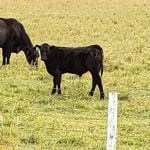Toronto beef, veal and lamb processor Ryding-Regency Meat Packers has picked up a federal loan worth over $2 million for upgrades to its production lines and computer tracking system.
The facility, which the government described in a release Friday as Ontario’s second-largest federally inspected abattoir, ships meats to the grocery and foodservice sectors in Ontario, Quebec and the northeastern U.S.
“The installation of more efficient systems on their production lines and an upgraded computer tracking system will help the plant reduce costs, increase efficiency and be better positioned to capture new niche markets for farmers,” the government said in its release.
Read Also

Ample supplies and improved livestock sector to boost Canadian feed sector: FCC
Abundant feed grain supplies and improved profitability for the livestock sector should support strong feed demand and sales through the winter, says a new report from Farm Credit Canada.
Company owner Joe Petronaci said in the same release that the funded improvements are “deemed necessary to meet the changing requirements of industry in order to remain competitive.”
Ryding-Regency, which Petronaci launched in 1983 as a meat boning facility, expanded into slaughter operations in 1991.
According to the company, the plant now employs 135 people processing over 65,000 head of cattle, 4,000 lambs and 4,000 veal calves per year, for annual sales of over $90 million.
The federal funding, worth up to $2,092,500 flowing through the Slaughter Improvement Program, is expected to help ensure the livestock sector “remains self-sufficient and less reliant on long-haul shipments for slaughter,” the government said.
Originally budgeted to provide up to $50 million in loans, the program is meant to back “sound business plans aimed at reducing costs, increasing revenues and improving operations” for Canadian red meat packers and processors.
To be eligible for program funds, activities and costs must have been incurred no earlier than April 1, 2009. Funded projects must be finished by March 31, 2012.
March’s federal budget put up an extra $10 million for the program by way of the government’s Agricultural Flexibility Fund.
















